News
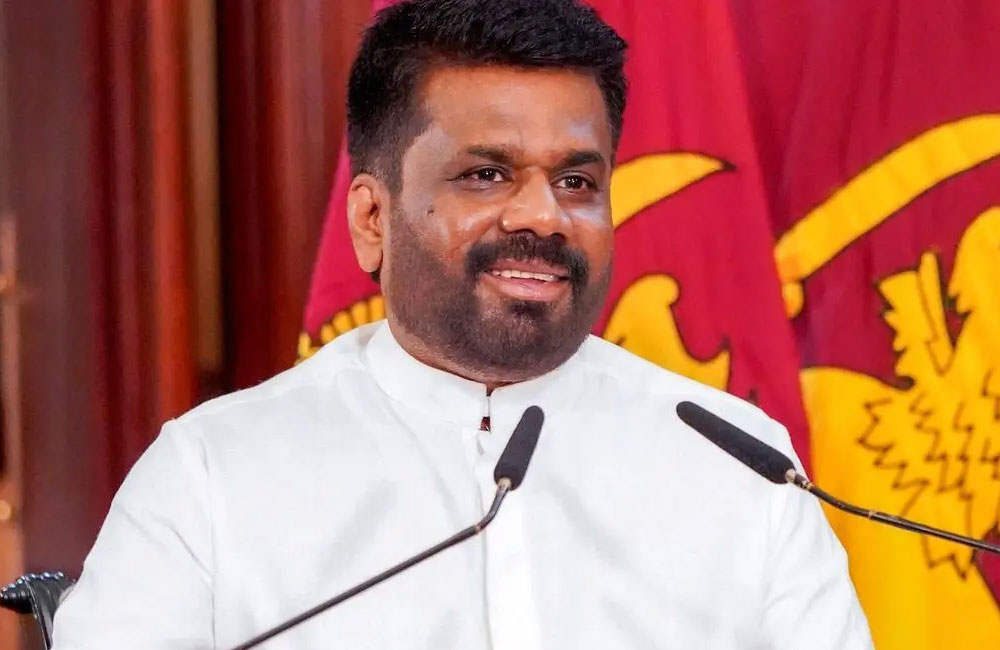
President Pledges Continuity of Government Programs Despite Cyclone Ditwah Damage
President Anura Kumara Dissanayake has firmly stated that the destruction caused by Cyclone Ditwah will not be used as a justification to suspend or reverse the government’s official programs.
The President made these remarks at the inauguration of the national initiative titled “Rebuilding Sri Lanka,” a program launched to coordinate and manage post-disaster reconstruction efforts across the country.
He noted that although Sri Lanka was still in the process of recovering from recent economic hardships when the cyclone struck, the government had no intention of stepping back from its planned policies. Emphasizing continuity, President Dissanayake said the administration remains committed to addressing the crisis while adhering to its established policy framework.
Reflecting on past experiences, the President observed that previous disasters had often been used to justify delays or reversals in governance. However, he stressed that the current administration had consciously decided not to follow that path.
Providing details on the scale of the disaster, President Dissanayake said approximately 700,000 people were displaced due to the cyclone. Around 6,000 houses were completely destroyed, while nearly 110,000 homes suffered partial damage. A further 10,000 houses, though not physically damaged, were deemed unsafe, prompting the evacuation of residents.
The President underlined that he remains accountable to the mandate granted to the government and will not allow any external influence to weaken it. Parliament has approved a supplementary allocation of Rs. 500 billion to address cyclone-related recovery efforts.
From this allocation, Rs. 5,000 million has been set aside to reconstruct 2,500 fully destroyed houses, with plans in place to build more than 50,000 new homes by 2026 as part of the long-term recovery program.

President Dissanayake Meets Outgoing US Ambassador Julie Chung
President Anura Kumara Dissanayake met U.S. Ambassador to Sri Lanka Julie Chung at the Presidential Secretariat on Monday, prior to her departure from the country on January 16, which will mark the conclusion of her diplomatic assignment.
During the meeting, President Dissanayake conveyed his gratitude for Ambassador Chung’s efforts to enhance cooperation and strengthen ties between Sri Lanka and the United States throughout her tenure.
The President also acknowledged her contribution in facilitating U.S. support for communities affected by Cyclone Ditwah, as well as her engagement in discussions related to Sri Lanka’s programme with the International Monetary Fund.
Ambassador Julie Chung has served as the United States Ambassador to Sri Lanka since assuming office in February 2022.
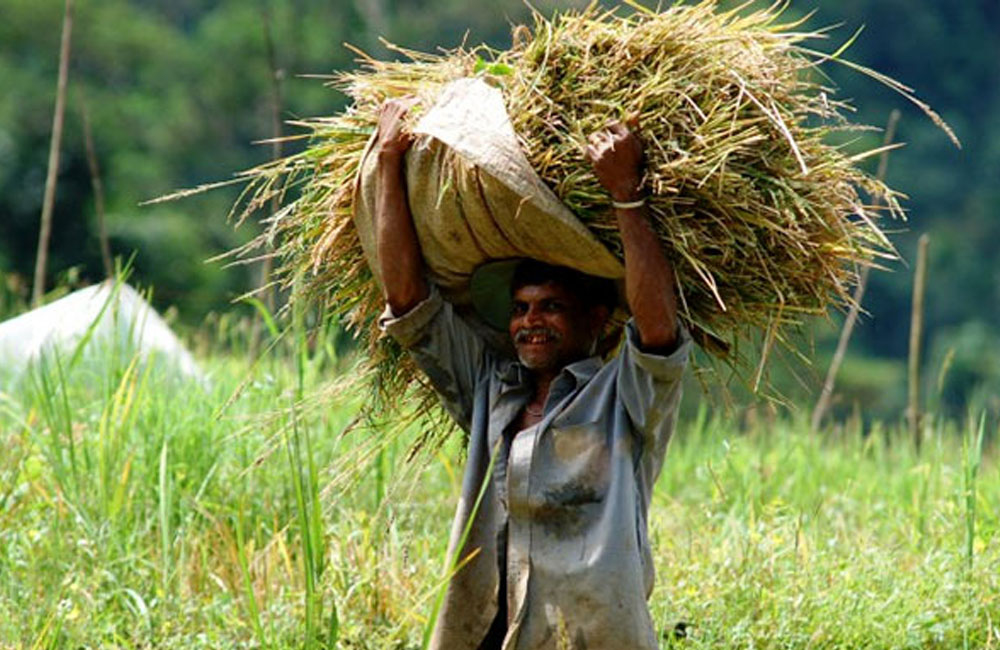
Government Announces Higher Paddy Prices Ahead of New Season
Deputy Minister of Agriculture Namal Karunaratne has announced that revised paddy prices will come into effect from the forthcoming cultivation season, providing increased returns for farmers.
He stated that while the price of Nadu paddy will remain unchanged at Rs. 120 per kilogram, the purchasing prices of other key varieties will be adjusted. Accordingly, the price of Samba paddy will be increased from Rs. 125 to Rs. 130, while Keeri Samba paddy will rise from Rs. 132 to Rs. 140.
The Deputy Minister emphasized that despite the increase in paddy prices, there will be no corresponding hike in rice prices for consumers.
Farmers will be able to sell their harvest at the revised rates from the upcoming season itself, Karunaratne added.
He further noted that although previous years had seen attempts by organized groups to manipulate the rice market during this period, steps have already been taken by the authorities to prevent such monopolistic practices and protect both farmers and consumers.

Chinese Foreign Minister on a brief visit to Sri Lanka
Chinese Foreign Minister Wang Yi arrived in Sri Lanka this morning (12) on a brief visit during a transit stop en route to China following an official visit to South Africa and has reaffirmed China’s commitment to supporting Sri Lanka’s reconstruction efforts following Cyclone Ditwah.
Minister Yi has also assured that he would personally intervene to assist in rehabilitating critical infrastructure, including roads, railways, and bridges affected by the disaster.
Sri Lanka’s Foreign Affairs Minister Vijitha Herath met Yi, and commenting on the meeting, Herath said that while welcoming Minister Wang Yi, he had extended his sincere appreciation to the Government and the people of China for their timely and generous support to Sri Lanka in the aftermath of Cyclone Ditwah.
“I was pleased to meet H.E. Wang Yi, Minister of Foreign Affairs of the People’s Republic of China, during his brief visit to Sri Lanka this morning (12/01/26). Our discussions focused, among others, on further advancing cooperation in the areas of trade and investment, development cooperation and tourism. The discussions also focused on rebuilding Sri Lanka post Cyclone Ditwah,” Minister Herath stated in a post on ‘X’.
Herath further said that in this regard, he particularly requested the assistance of the Chinese government in infrastructure development, including reconstruction of identified roads, railways and bridges which were affected.
“Minister Wang Yi assured his personal intervention to the said request and expressed confidence that Sri Lanka is on the right track for early recovery, and reaffirmed the Chinese Government’s fullest support,” he added.
Minister Yi, accompanied by a 17-member delegation, was returning from Durban when the group had stopped in Sri Lanka.
(Source:pulseline.lk)

Rupee Gains Further as Dollar Rates Ease at Major Banks
The Sri Lankan Rupee continued its upward movement against the US Dollar at commercial banks today (13 January), showing further appreciation compared to Monday, while the average selling rate remained around Rs. 312.
At Seylan Bank, the Dollar buying rate declined to Rs. 306.40, with the selling rate easing to Rs. 311.15. NDB Bank also adjusted its rates downward, recording a buying rate of Rs. 305.90 and a selling rate of Rs. 312.40.
People’s Bank reported a reduction in both rates, with the US Dollar now buying at Rs. 305.54 and selling at Rs. 312.28. Commercial Bank similarly revised its exchange rates, lowering the buying rate to Rs. 303.74 and the selling rate to Rs. 312.25.
Meanwhile, Sampath Bank maintained its existing rates, keeping the Dollar buying price unchanged at Rs. 305.75 and the selling price at Rs. 312.25.
Overall, the exchange rate adjustments reflect a modest strengthening of the Rupee, with the Dollar selling rate remaining broadly stable across the banking sector.
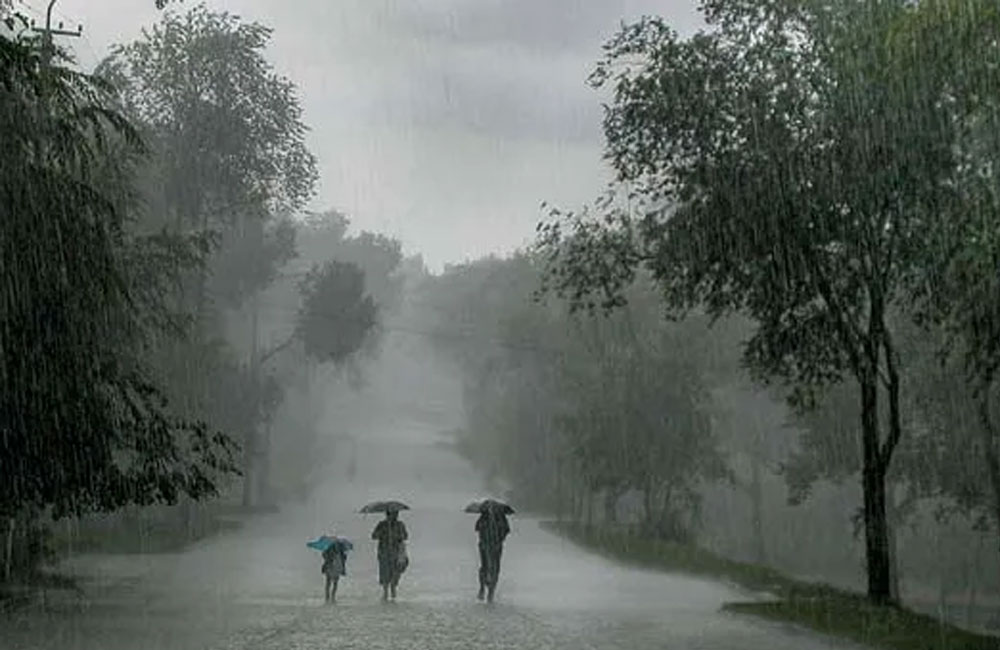
Showers and Thundershowers Forecast Across Several Provinces Today
The Department of Meteorology has forecast several periods of showers across the Northern, North-Central, Uva, Eastern and Central provinces today (13 January).
In addition, showers or thundershowers are expected to develop after 1.00 p.m. in parts of the Western, Sabaragamuwa and North-Western provinces, as well as in the Galle and Matara districts.
According to the Met Department, certain locations may experience fairly heavy rainfall exceeding 50 millimetres during the day.
Misty conditions are also likely during the early morning hours in some areas of the Western, Sabaragamuwa, Central and Uva provinces, along with the Galle, Matara and Kurunegala districts.Authorities have urged the public to take necessary safety precautions to reduce potential damage from temporary localized strong winds and lightning associated with thundershowers.
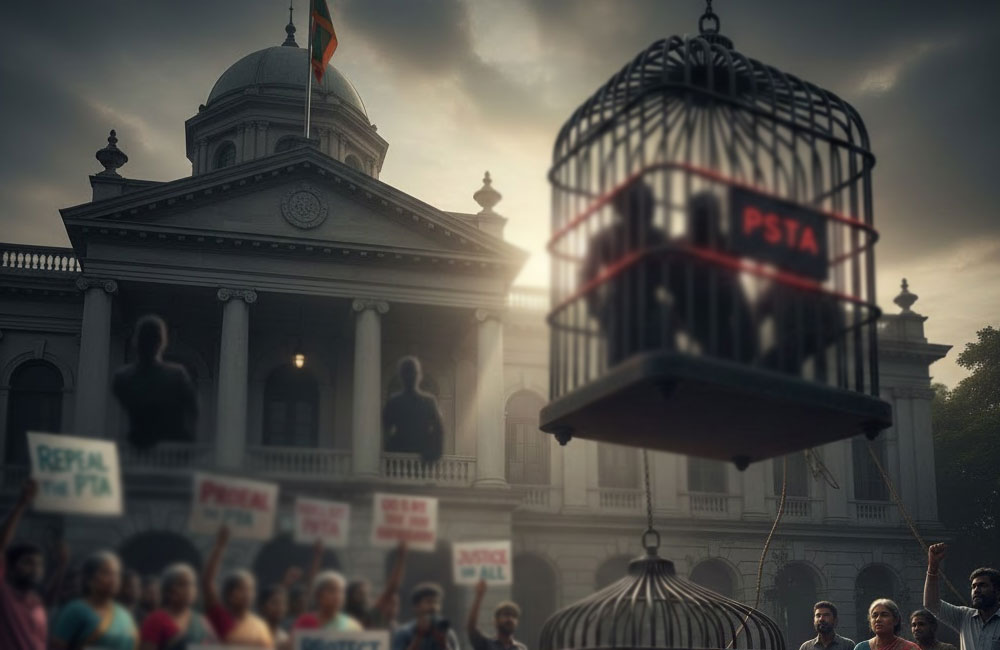
Legacy of failed terror laws
The correct title for the proposed bill mentioned in the first part of this article should be “Protection of the State from Terrorism Act – PSTA,” not “Prevention of State Terrorism Bill” (PSTA). I regret the oversight.
Why Sri Lanka must repeal the PTA
Let us start with an uncomfortable truth. The Prevention of Terrorism Act (PTA) has failed at its primary mission. Decades after its introduction, terrorism has not been prevented by this legislation; it has merely been responded to, often heavy-handedly. Meanwhile, the Act has become something far more insidious, a tool to silence dissent and control the narrative around government policies.
When legislation designed to protect citizens instead becomes a weapon against them, we have crossed a dangerous line. The PTA, and now its proposed successor, the draft Protection of the State from Terrorism Act (PSTA) Bill, operate by definition and in practice as partisan instruments. They do not serve “the people”, but continue to serve only those, whoever holds power at any given moment.
First, let us pose a simple but critical question. Why should a law that does not work, that does not protect everyone equally, and that actively undermines the rule of law it claims to uphold, exist? The answer is an equally simple one. It should not exist.
The PTA’s track record of abuse
The PTA originated in 1979 as temporary legislation while decades of escalating ethnic tensions and violence were culminating towards the civil war and was made permanent in 1982. While justified as necessary to preserve national security, it quickly became a tool for arbitrary arrests, torture, and suppressing dissent, especially targeting minorities and critics. UN experts and human rights groups have continually condemned its severe violations of human rights and demanded its repeal or genuine reform.
The fact that the Prevention of Terrorism Act (PTA) was debated and passed in a single day should alarm anyone who cares about the democratic process. During the civil war from 1983 to 2009, it was used extensively against the Tamil minority and suspected LTTE militants. After the 2019 Easter Sunday bombings, its use expanded to target the Muslim community. Despite the end of the war in 2009, the PTA continues to be used against political opponents, journalists, human rights defenders, and protesters, not just suspected terrorists.
The Act, with definitions of terrorism, authorises prolonged detention, extraction of confessions via torture, and punishment for failing to report terrorists. The 2022 amendments reduced maximum pre-trial period of detention from 18 to 12 months but failed to address fundamental issues like the admissibility of confessions obtained under torture. Despite repeated promises of repeal, including by the NPP government that came to power in late 2024, the PTA remains in force to date.
The safeguards against misuse of the legislation by authorities are feeble or totally disregarded. The broad and unclear definitions of terrorism allow for targeting dissent. It provides powers for long periods of detention without charge or trial. International actors, including the EU and UN, continue to call for its repeal or fundamental overhaul.
Starting from first principles
Some argue that anti-terrorism legislation is necessary in principle, even if the current version is flawed. I understand this perspective, but I cannot share it; at least not without fundamental reforms that the current proposals do not address.
If the government genuinely believes such legislation is essential, then the PSTA must be redesigned from the ground up with three non-negotiable characteristics; those are, effectiveness, non-discrimination, and a clear pro-people orientation. The current bill fails on all those three counts.
Defining Terrorism with Precision
The word “terrorism” has become dangerously elastic in political discourse. It stretches to cover everything from genuine threats to public safety, to peaceful protests that simply make those in power uncomfortable. This ambiguity is not accidental. It is useful to governments that want maximum flexibility in applying the law.
However, this is precisely where democracy dies; in the vague spaces where those who enforce the laws can mean whatever they want. Any anti-terrorism legislation must begin with a definition that is clear, succinct, and comprehensive. More importantly, the scope of its definition must be made deliberately narrow, preventing authorities from applying it selectively against political opponents or marginalised communities.
That narrow definition could be something like this. Terrorism is not words, not ideas, not expression, but an action that deliberately attempts to frighten, threaten, or endanger efforts meant to safeguard the interests of all people in the country, not just a privileged few or a particular section of society.
Notice what this definition excludes: speech, writing, peaceful protest, and political advocacy. These actions do not represent terrorism. They represent the lifeblood of democracy.
Accountability: The missing piece
Even the best-written law can be misused. That is why any anti-terrorism legislation must include robust accountability mechanisms. Those are the things that are conspicuously absent from both the PTA and the PSTA.
If the law is applied inappropriately, whether intentionally or through negligence, victims must be compensated for the harm done to their reputation and for their material losses. This is not something done at will; it is fundamentally about serving justice. Moreover, those responsible for misapplying the law, whether police, prosecutors, or government officials, must face appropriate penalties. Without personal accountability, there is no incentive to exercise restraint or respect civil liberties.
Democracy’s foundation: Freedom of expression
The fundamental basis of my objection is that democracies are founded on the principle of freedom of expression. This is not a luxury or a nice-to-have option; it is the foundation on which everything else rests.
When citizens are unable to freely express their opinions on government policies, when journalists fear arrest for reporting inconvenient truths, and when activists hesitate to organise because they may be labelled terrorists, democracy has failed long ago.
The PTA and PSTA curtail this fundamental right. In doing so, they strike at something essential to our humanity. Freedom of expression is not just about politics. It is about personal growth, about our development as complete human beings, whom Aristotle called “political animals.”[i] Only when we experience that freedom we transcend the chaotic, but beautiful reality of plurality in diversity.
True unity does not come from silencing dissent; it emerges through consultation, inclusion, and participation. It is forged when people with different perspectives come together, express their views freely, and work toward shared goals despite their differences.
Authoritarian turning points
The 20th century’s socialist experiments aimed to enhance mass welfare but often those ended up by creating systems of tyranny. In many developing countries, socialism failed to deliver equality; instead, those with the strongest political connections were most empowered.
Regimes claiming to champion the marginalised, brutally repressed dissidents and established authoritarian states worldwide. Though socialism’s appeal still persists globally, capitalist forces have historically pushed progressive governments toward authoritarianism by creating economic vulnerabilities. The most recent exemplification being in Venezuela, which relied on repression under external pressures.
Progressive governments struggle to balance investment attraction and independent policies; failed reforms often trigger capital flight and government repression. International financial institutions pressure governments into unpopular fiscal reforms. This often results in reducing democratic debate and limiting citizen participation.
As economic conditions deteriorate, both socialist and capitalist systems may resort to increased authoritarianism, utilising militarised policing and surveillance to maintain order under the guise of stability. This trade-off frequently involves sacrificing democratic spaces for liberalised capital and favourable investment climates, with regimes employing authoritarian capitalism to enforce market-oriented policies while consolidating power.
A pro-people vision
The ideas I am defending here are not anti-government; they are pro-people. Here, there is a crucial distinction. Being pro-people means prioritising the rights and welfare of citizens above the convenience of those in power. It means creating systems that protect everyone’s ability to seek, receive, and distribute information without fear.
This should be acceptable common ground for any government that truly serves its people, regardless of political affiliation. The NPP came to power promising change and reform. Here is an opportunity to demonstrate that those promises would not be empty.
The path forward
To those who approached me hoping I would soften my stance: I appreciate your concern, and I want the NPP government to succeed in its mandate to serve the people. However, that success cannot be built on enacting legislation that undermines the very freedoms democracy requires.
The NPP government prior to its election to power, pledged to transform Sri Lanka into “A Thriving Nation, A Beautiful Life” through a “system change” focused on ending corruption, ensuring national unity, and achieving economic stability. A government will be successful to the extent that it carries the masses with it, not due to the strength of its armed forces or the armoury. Many progressive governments failed due to their actions that lacked this understanding.[ii]
Repeal the PTA. Withdraw the PSTA. If anti-terrorism legislation is genuinely needed, start over with genuine consultation, clear definitions, narrow scope, and built-in accountability. Create something that protects people from actual threats without threatening the people themselves.
This is not opposition, but a kind of critical friendship any government should embrace. Because ultimately, we all want the same thing, that is a Sri Lanka where every citizen feels safe, heard, and free: “A Thriving Nation, A Beautiful Life”. That land would be a land where the law protects people rather than threatens, where diversity strengthens unity among people rather than divides them, and where democracy means more than just elections every few years.
The foundation of such a society is freedom: freedom to speak, to question, to dissent, to imagine better possibilities. If built on that foundation, everything else will follow. Build on fear and repression, and no amount of legislative engineering can create lasting security or genuine peace.
The choice before Sri Lanka’s leaders is clear. The only question is whether they have the wisdom and courage to make it.
[i]Aristotle used the phrase “political animal” to describe humanity’s place in the natural world. He wanted to remind us that while we may dream of rising to divine heights, we remain fundamentally mortal beings. We exist within nature’s intricate network of dependencies, requiring specific conditions and communities to survive and flourish.
[ii]Historically “socialist” states failed because they concentrated power in government hands rather than empowering workers, relied on force instead of building popular support to maintain control, and created systems where people felt disconnected and unmotivated.
Disclaimer: The views and opinions expressed in this article are those of the writer and do not necessarily reflect the official position of this publication.
By Lionel Bopage
(Source: pulseline.lk)
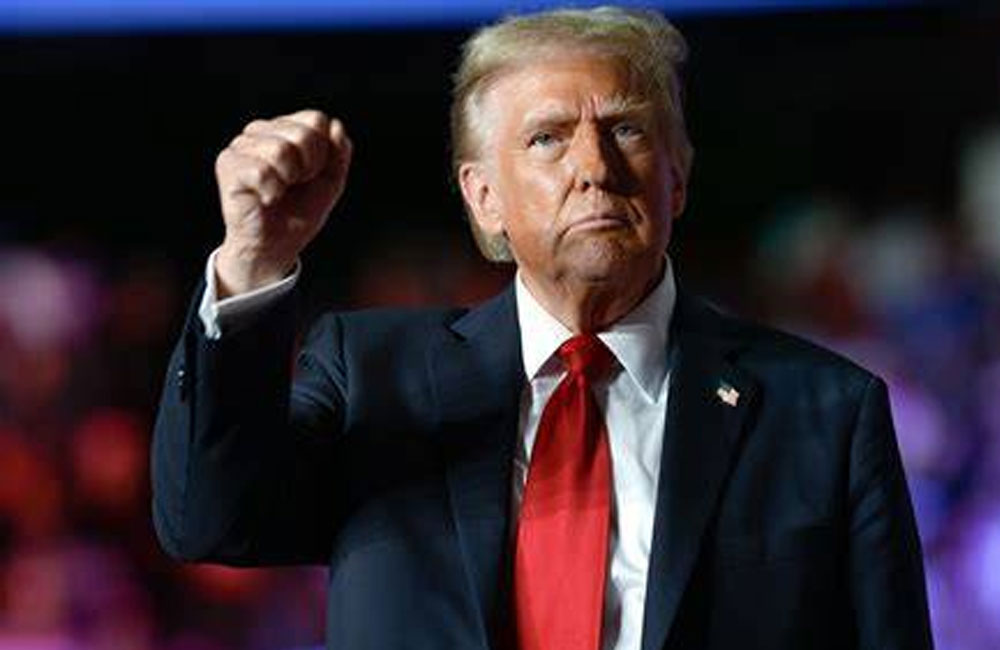
Donald Trump announces 25% tariff on countries doing business with Iran
US President Donald Trump on Monday said he had imposed a 25% tariff on goods from countries with commercial ties to Iran, a move that could put pressure on Tehran as anti-government protests enter a third week.
Trump said on social media that the tariff was “effective immediately”, without offering details of what constituted “doing business” with Iran.
China is Iran’s largest trading partners, followed by Iraq, the United Arab Emirates, Turkey and India.
The new tariff comes after Trump threatened to intervene militarily if Tehran killed protesters. White House spokeswoman Karoline Leavitt said on Monday that military options including air strikes were still “on the table”.
“Any Country doing business with the Islamic Republic of Iran will pay a Tariff of 25% on any and all business being done with the United States of America,” Trump wrote on Truth Social on Monday.
“This Order is final and conclusive,” he added.
The White House did not share additional information about the tariffs, including which countries’ imports will be hit hardest.
Anger over the plummeting value of the Iranian currency, the rial, sparked protests in late December, which have grown into a crisis of legitimacy for Iran’s Supreme Leader, Ayatollah Ali Khamenei.
The US-based Human Rights Activist News Agency (HRANA) says it has verified the deaths of nearly 500 protesters and 48 security personnel in Iran, while sources tell the BBC the death toll could be much higher. Thousands more have reportedly been arrested.
However, an internet blackout since Thursday evening has made it difficult to obtain and verify information. The BBC and most other international news organisations are unable to report from inside Iran.
Trump has threatened to intervene, and said on Sunday that Iranian officials had called him “to negotiate” - but added “we may have to act before a meeting”.
International sanctions over Iran’s nuclear programme have had a severe impact on the country’s economy, which has also been weakened by government mismanagement and corruption.
On 28 December shopkeepers took to the streets of Tehran to express their anger at another sharp fall in the value of the rial against the US dollar on the open market.
Iran’s currency has sunk to a record low over the past year while inflation has soared to more than 40%, resulting in sharp price rises for everyday items like cooking oil and meat.
Source:adaderana.lk

Oil prices gain on Iran supply disruption concerns
Oil prices edged higher on Tuesday, as heightened concerns surrounding Iran and potential supply disruptions outweighed the prospect of increased crude supply from Venezuela.
Brent futures gained 28 cents, or 0.4 per cent to $64.15 a barrel by 0101 GMT, hovering near a two-month high struck in the previous session.
U.S. West Texas Intermediate crude rose 28 cents, or 0.5 per cent, to $59.78, its highest since December 8 hit earlier in the session.
Iran, one of the biggest producers of the Organization of the Petroleum Exporting Countries, is facing its biggest anti-government demonstrations in years, drawing a warning from U.S. President Donald Trump of possible military action over lethal violence against protesters.
Trump is expected to meet senior advisers on Tuesday to discuss options on Iran, a U.S. official told Reuters.
The U.S. president said on Monday that any country that does business with Iran will be subjected to a tariff rate of 25 per cent on any business conducted with the United States.
The developments matter for oil markets as Iran is a major sanctioned producer and any escalation could disrupt supply or add a geopolitical risk premium.
“Unrest in Iran has added about $3-4/barrel in geopolitical risk premium in oil prices, in our view,” Barclays said in a note.
Markets are also grappling with concerns of additional crude supply hitting the market due to Venezuela’s anticipated return to exports. Following the ouster of President Nicolas Maduro, Trump said last week the government in Caracas is set to hand over as much as 50 million barrels of oil, subject to Western sanctions, to the U.S.
Global oil trading houses have emerged as early winners in the race to control Venezuelan crude flows, getting ahead of U.S. energy majors.
Elsewhere, geopolitical tensions escalated as Russian forces launched attacks on Ukraine’s two largest cities early on Tuesday, Ukrainian officials said, killing one person in the northeastern city of Kharkiv.
In the United States, the Trump administration renewed its attacks on the Federal Reserve, underscoring concerns in markets about the central bank’s independence and adding to uncertainty about future economic conditions and oil demand.
Source:adaderana.lk

Rupee Edges Up Against US Dollar as Bank Rates Show Minor Changes
The Sri Lankan Rupee has shown a marginal strengthening against the US Dollar at commercial banks today (12 January), with the overall selling rate remaining broadly stable compared to last week.
At Seylan Bank, the US Dollar buying rate has declined to Rs. 306.65, while the selling rate has eased to Rs. 311.40. NDB Bank also reported a reduction, with the buying rate now at Rs. 306 and the selling rate at Rs. 312.50.
People’s Bank indicated that the Dollar buying rate has decreased to Rs. 305.74, with the selling rate recorded at Rs. 312.48. Meanwhile, Commercial Bank has kept its exchange rates unchanged, maintaining the buying rate at Rs. 304.24 and the selling rate at Rs. 312.75.
Similarly, Sampath Bank reported no change in its rates, with the US Dollar buying at Rs. 305.75 and selling at Rs. 312.25.
#neOverall, the Dollar selling rate across major commercial banks continues to hover around Rs. 312, reflecting relative stability in the foreign exchange market.

Australia captain Alyssa Healy to retire from cricket after India series
Alyssa Healy, the Australia captain and one of the most successful players of all time with eight World Cup titles, will retire from all cricket after the multi-format home series against India in February-March 2026.
Healy, who was named Meg Lanning’s full time successor as captain in late 2023, won’t feature in the T20I leg of the India series so Australia can start building towards the T20 World Cup later in the year, but will play the ODIs before finishing her career with an 11th Test cap in the day-night encounter at the WACA from March 6-9.
“It’s been a long time coming,” Healy said on Willow Talk, the podcast she’s a regular panelist on. “The last few years has been probably more mentally draining than anything else. A few injuries. I’ve got to dive into the well, and the well is getting less and less full of water. Getting harder to dive back in there.
“I’ve always felt like I’ve had a competitive edge in that I want to compete, I want to win and I want to challenge myself on the park. I’ve felt as I’ve got a little bit older, I’ve not necessarily lost all of it, but I’ve lost some of that.
“I think the WBBL [last year] was probably a bit of a wake-up call. Not being able to hold the bat with two hands didn’t help either but waking up and going, ‘just another day of cricket’, really surprised myself because I still thought I loved playing the game.”
While thoughts had started to turn to when Healy may call time on her career, the somewhat sudden nature of the announcement was a surprise. But had been partly been forced by her decision not to play through to the 2026 Women’s T20 World Cup in England in June. Healy said trying to reach that tournament would not have been “doing the right thing” by her team-mates.
“There might be a little bit of change within that series [against India] leading into the World Cup, and some leadership stuff. But for me, the opportunity to play at home, still captain the team in that series is going to be really special,” Healy said
“I never wanted to announce it, wanted to get to the end of the Test match [against India, starting March 6 in Perth], but with me not going into the T20 World Cup, it’s forced a little bit of change. Not a lot of T20 cricket leading into that for the girls, so it’s probably the place for me to make a decision on that format and give the girls an opportunity to prepare for that World Cup knowing that I’m not going to be there.
“It has forced an announcement of sorts, but it has given me some peace as well because I’ve known this in the back of my mind for probably six months. But to finally say it and get it out there, would be ideal for everyone to just clap it and move on.
“At the end of the day, to have an opportunity to finish at home against India, which is on the calendar one of the biggest series for us. I thought that would be a really cool way to finish with some of my team-mates and some family around as well. It would’ve been nice to do it in India with a World Cup, but doing it at home will be something special.”
Healy conceded the injury late in the ODI World Cup was “a real body blow” and had severely hindered her during the WBBL but added she was currently feeling good fitness-wise ahead of her final months in the game.
“I think I’ve been doing this for a really long time and competed at the highest level for that amount of time, [so announcing retirement] wasn’t a sad thing,” she said at a press conference in Sydney. “I’ve always enjoyed the perspective of there’s so much more to life than just cricket. I’m really blessed with that perspective throughout my life.
“I guess when it comes to retirement, it’s quite daunting for a lot of people, but standing here right now, I’m really excited for the future come the end of March.
“I’ll obviously be excited to run back out there a couple more times for Australia, but what happens after that I think is going to be really exciting and I’m looking forward to that next chapter. It was just probably one of those moments where you know that one door closes and another one might open.”
Healy made her Australia debut as a 19-year-old in February 2010 and has scored more than 3500 runs in ODIs. In T20Is she will finish with 3054 runs at 25.45 including a career-best 148 not out, the highest individual score among Full Member teams. She has since played the second most T20I matches for Australia and currently holds the record for the most T20I dismissals (men’s or women’s).
She won the Women’s T20 World Cup in 2010, 2012, 2014, 2018, 2020 and 2023 and the ODI World Cup in 2013 and 2022. Healy was also ICC’s T20I Cricketer of the Year in 2018 and 2019.
“Alyssa is one of the all-time greats of the game and has made an immeasurable contribution both on and off the field over her 15-year career,” Todd Greenberg, the Cricket Australia CEO, said. “On behalf of Australian Cricket, I’d like to thank Alyssa and congratulate her on an incredible career that has inspired so many and changed the game for the better. We look forward to celebrating her achievements throughout the series against India.”
Healy is expected to feature in the WNCL for New South Wales over the coming weeks in preparation for the India series but has played her last game for Sydney Sixers in the WBBL.
“Alyssa leaves behind an incredible legacy, inspiring a generation of young cricketers, both boys and girls,” Leah Poulton, Cricket NSW head of female cricket, said. “She’s an entertainer in every sense of the word and an absolute joy to watch.
“I feel fortunate to have witnessed her journey from start to finish, and to watch her grow into such an accomplished leader and figure in the game. Cricket will miss her on-field presence, but I know she won’t be lost to the sport.”
Rachael Haynes, Sydney Sixers’ general manager and Healy’s former team-mate, said: “Midge is a larrikin, a leader and the ultimate team-mate whose impact has pioneered change in our game, especially for female athletes.”
(newswire.lk)

Met Department Issues Severe Lightning Warning for Several Provinces
The Department of Meteorology has released a special advisory warning of severe lightning activity affecting the Western, North-Western and Sabaragamuwa provinces, as well as the Galle and Matara districts.
According to the advisory, which remains in effect until 11.00 p.m. today (12 January), red-level warnings have been issued for nine districts, while amber-level alerts have been declared for five additional districts.
Meteorologists caution that thundershowers in these areas could be accompanied by temporary localized strong winds, increasing the risk of damage.Members of the public are strongly advised to take necessary safety measures to reduce potential harm caused by lightning and adverse weather conditions.
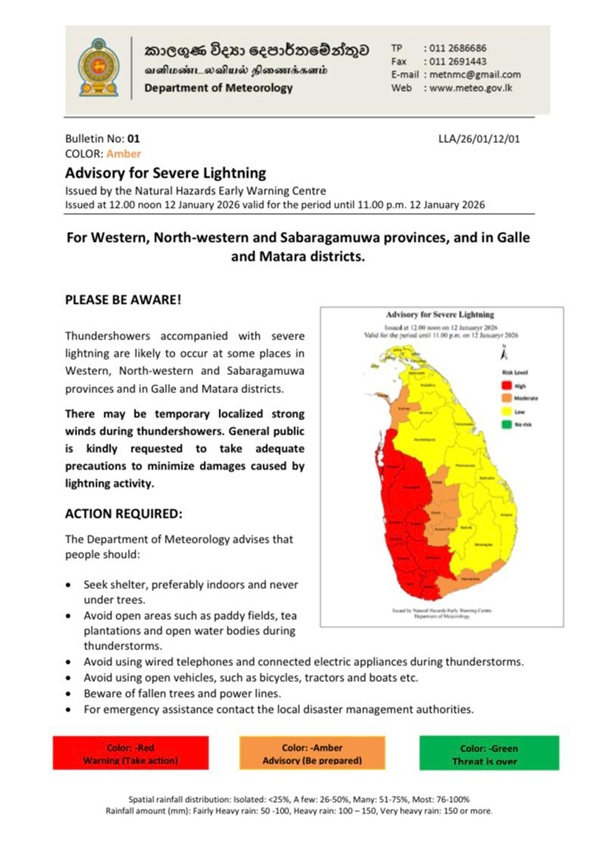
Page 37 of 684